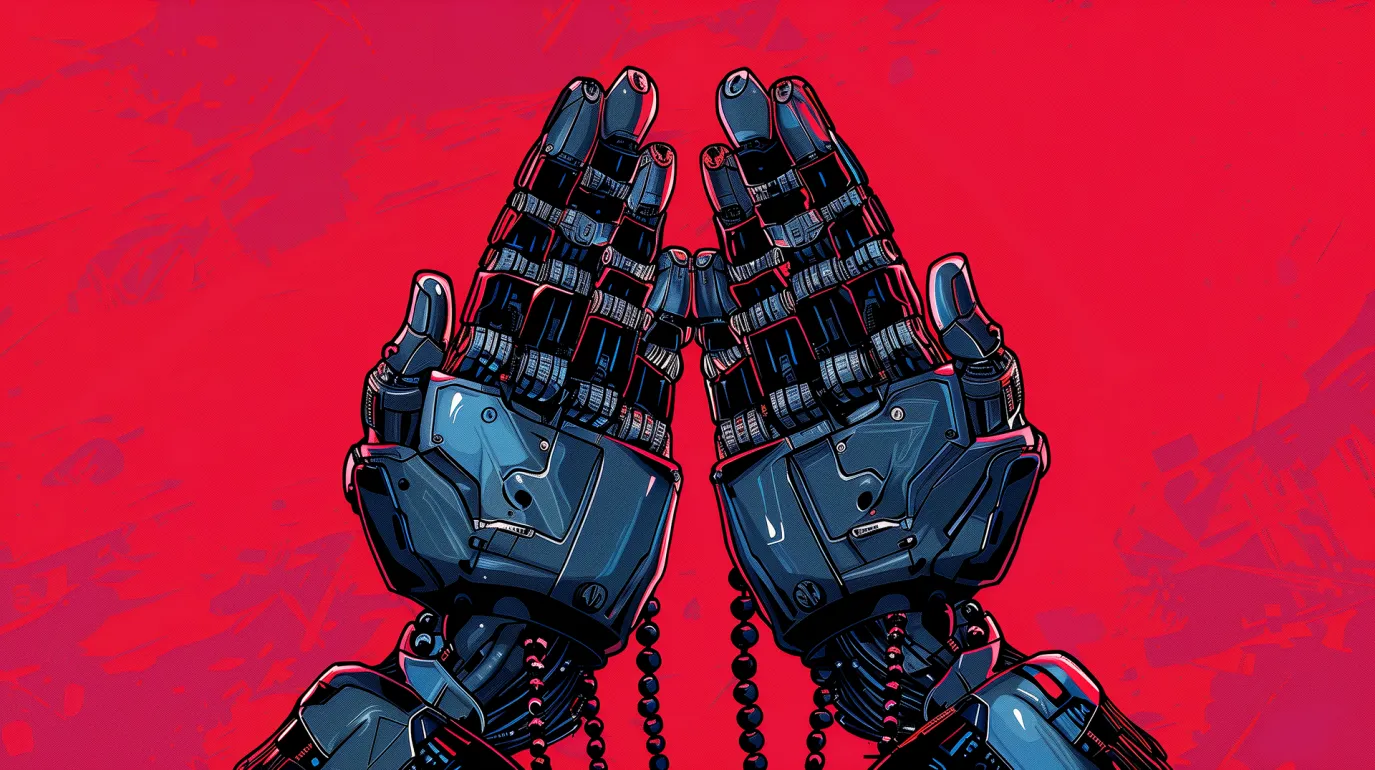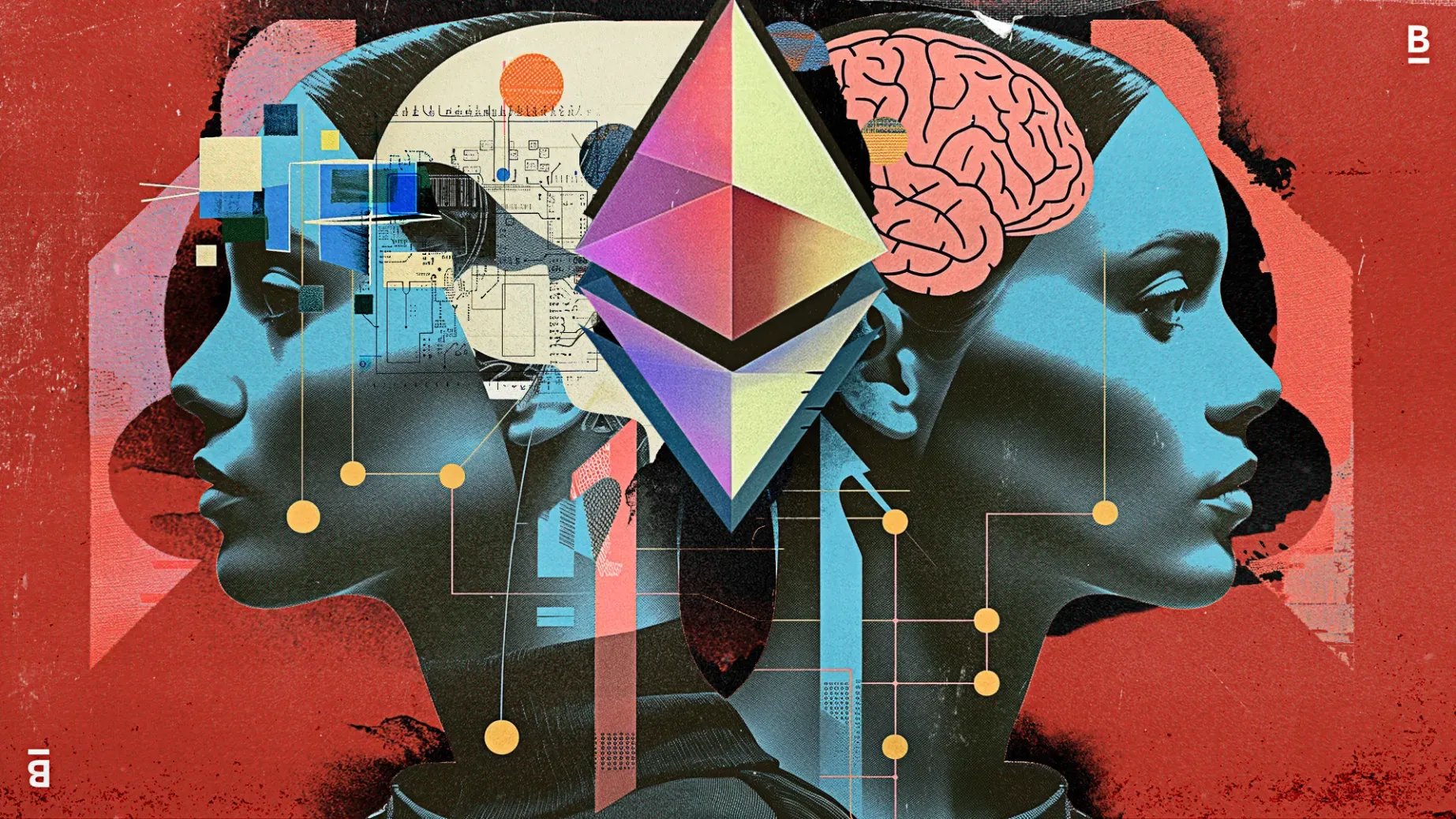Why AI Needs Crypto’s Values

The tech industry's dreams of an AI revolution have always been a double-edged sword.
Unleashing AI could solve humanity’s biggest challenges, but it could also concentrate power in dangerous ways.
That's where crypto and blockchain come in. The same values that make crypto cool can help make AI better. These values can help build a fairer, safer, and more open future for AI.
Decentralization, permissionless innovation, open source systems, privacy, transparency, user ownership. These aren’t just fancy words; they can potentially crack open the black box of AI.
Here’s why the AI industry needs crypto’s magic 👇
Building an Inclusive and Open-Source AI Ecosystem
A few big tech companies currently control most of the computing power and are building moats around their AI research. This has created an 'AI mafia' that stifles innovation and competition faster than you can say "walled garden.”
Decentralization, however, is the ultimate plot twist.
In the decentralized AI paradigm, there’s permissionless access to computing power and AI research. AI becomes a tool for everyone, breaking down the barriers set by the AI mafia and democratizing access to knowledge, tools, and resources.
Sharing resources means more people can work on AI's toughest challenges. The more diverse the builders, the less biased the algorithms, and that's a win for everyone.
Banger line from @caseykcaruso:
— DavidHoffman.eth/acc🦇🔊 (@TrustlessState) February 27, 2024
“we all want open source AI, and a wide proliferation of models custom fit for various uses, but the tailwinds behind the economies of scale for AI models are very strong. Data monopolies and compute monopolies restrict open AI model development” pic.twitter.com/dXUyy8To1c
However, open-source development has always been hard to monetize. How do you get people to build great things if they can't earn from it? This often forces companies to go closed-source and for-profit.
‘Decentralized AI with crypto incentives’ fixes this.
Crypto offers new ways to monetize open-source AI. It creates an open marketplace for AI development, ensuring access and rewarding contributions with tokens.
For example, in decentralized AI networks like Bittensor, developers earn TAO tokens for their machine learning models when used in different AI applications.
This dynamic allows decentralized AI networks to attract top talent through tokenized incentives, creating a sustainable value chain that doesn't exist in closed-source, centralized models.
Ensuring Privacy of User Data
We live in a data-hungry world. Everyone wants your data to learn about your likes and dislikes and then use it to sell you things.
AI is no different. AI systems need lots of data to work well. Big AI companies often store entire conversation histories to train their models and improve services, but this creates a huge privacy issue.
Imagine all your personal info – shopping habits, browsing history, even health records – being thrown into a big AI pot. You have to trust the company not to misuse or sell it. Scary, right?
To truly gain user trust, AI needs to embrace privacy-preserving techniques. Building trust requires transparency and verifiability, and zero-knowledge proofs (ZKPs) can help with that.
There are also other ways AI projects in crypto are adopting privacy-preserving techniques. For example, Venice.ai stores conversation history only in the user's browser and ensures user requests are encrypted. GPU providers process these requests, but no server sees the entire conversation history or knows the user's identity.
We can create AI systems that respect user privacy and data ownership by integrating these cryptographic approaches and values.
How do we train AI models while maintaining privacy but without using user data? Without enough data, AI can't understand real-world situations well, leading to 'AI hallucinations' where the AI generates incorrect outputs.
This is where synthetic data comes in. Synthetic data is artificially generated using algorithms to mimic real data. It has privacy-preserving qualities because it doesn't expose personal information. All major AI companies use it, and it's an emerging area of research.
Crypto can incentivize the creation of synthetic datasets for training AI models by crowd-sourcing the work. Users can earn tokens for contributing verified data points, solving the problem of insufficient training data.
For example, projects like Synthetic AI build tools for creating synthetic data, allowing users to contribute synthetic data and earn SAI tokens. Ensuring the quality of these datasets can significantly accelerate efforts to generate data for training AI models while maintaining user data privacy.
Closing Thoughts
The future of AI is uncertain, but one thing's for sure: it needs to be built on an open-source foundation of trust and transparency.
Crypto, with its focus on decentralized ownership, permissionless access, and privacy, offers the missing piece. The tools are there, and it's time to use them and write the next chapter of the story of AI.
Can crypto's values improve the AI industry? Comment below and let us know your thoughts!

